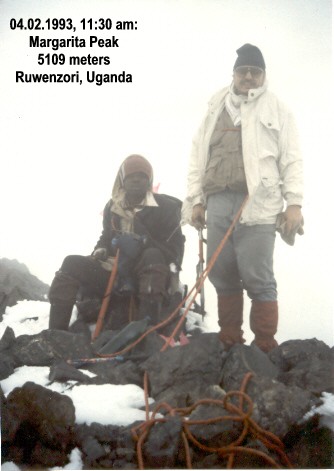Trade, development and democracy
Sourec: http://www.gatt.org/trastat_e/
Trade and development
Developing countries face higher tariffs on processed goods than on commodities; this is one of the reasons that the poorest countries are heavily dependent on a few commodities. Typical example, Burundi, where 98% of the exports are coffee, tea and cotton. ( "IMF Calls For Farm
Subsidy Cuts," Andrew Walker, BBC News, 29 April 2002)
A trade dominated by basic commodities means that these countries do not develop their infrastructural technologies, including education and training. The populations remain essentially in the service of more complex industries in the First World, which favors First World development but not that of the Third World. ( "The Great Trade Robbery," OXFAM)
India processes 1% of the food it grows; the U.S. processes 70% of the food it grows. (Vandana Shiva, "War and Peace on Our Farms and Tables," 3 September 2002)
Tariffs increase with level of processingin Japan and the EU tariffs on fully processed food are twice as high as those placed on first-stage processed food; in Canada they are 12 times as high. This means the incentive for TW countries is to output skill-unintensive staples rather than develop their technological infrastructure. (WTO Negotiations on Agriculture - Cairns Group Negotiating Proposal, 21 December 2001)
In Malaysia, the strategic use of local content policy enabled the Malaysians to build a “national car” in cooperation with Mitsubishi; that now has achieved about 80% local content and has captured 70 % of the Malaysian market. But our TRIMS (Trade Related Investment Measures agreement) would make that illegal today. (Autoportal, "Malaysia Market Summary")
Focus on basic commodities also means prices plummet. Prices for commodities traded by LDCs have plummeted – by 19% in 1990-98 and by some 70% since 1960. (UNCTAD Handbook of Statistics 2000)
Commodity prices have fallen dramatically, by some two thirds over the past 30 years, so that farmers have had to triple production just to maintain their incomes. One example among many: in just the last three years, Tanzanian farmers experienced a decline of 50% in the price of coffee ( OXFAM Briefing Paper No 9, November 2001)
In 1998, cereal companies like Kellogg’s, Quaker Oats, and General Mills enjoyed return on equity rates of 56%, 165%, and 222% respectively. That year, a bushel of raw unprocessed corn sold for less than $4, while a bushel of corn flakes sold for $133. The emphasis of regulation should be on determining whether the low rates of return of farmers are due to others making too high rates of return. (OXFAM News, "What's Eating Us?" Brian O'Neill)
While farmers earn less, consumers have been paying more. In many TW places, food prices have recently doubled. Consumption of food grains in many rural areas has dropped considerably. (OXFAM News, "What's Eating Us?" Brian O'Neill)
The number of livelihoods lost in the maize sector as a consequence of trade liberalization and the subsequent fall in maize prices is estimated at between 700,000 and 800,000, representing 15% of the economically active population in agriculture. (UNDP Occasional Paper 32, 1997)
Research has shown that those who suffer most from commodity price declines are the rural poori.e. the majority of Third World people. Basic agriculture employs over 50% of the people in developing countries, and accounts for 33% GDP. (UNCTAD Press Release, "UNCTAD Calls For Policy Changes to Avoid Throwing World Economy Into Recession," 25 August 1998)
The Agreement on Agriculture (AoA) has led to surge of food imports into the 16 countries studied but not to an increase in their exports, resulting in a concentration of farm holdings and increased marginalisation of small producers and added to unemployment and poverty. (Paper presented at an FAO Symposium on Agriculture, Trade and Food Security, September 1999, synthesis of Case Studies of 16 Countries.)
Liberalised trade has resulted in increased imports of foodstuffs: “The majority of the poor are not benefiting bot are instead made more vulnerable to food insecurity” (Hezron Nyantgito 1999 ‘Kenya: Impact of the Agreement on Agriculture” on food security’, Nairobi: Institute of Policy analysis and Research)
Democracy
Top 100 transnational corporations increased assets 697% between 1980 and 1995. At the same time employment in these corporations went down. ("TNC's, Employment is Not the Point," Susan George, TNI Website, 2/99)
Six corporations now control most of the U.S. media (versus 50 in 1983). It is clear that this situation makes for increasingly more limited freedom of expression, and greater power on the part of corporate interests to manage public resentment. Many studies have shown that there has been a rapid and profound “dummying up” of the news and of general content as a result of these mergers, as the side effect of extensive collaboration. (Mediachannel.org, "Media concentration Chart")
Corporations account for the majority of int’l trade, but WTO agreements apply to government policies and actions rather than companies. The reason is the original thinking behind GATT, which was to regulate the power of bad governments to interfere with entrepreneurial effort. This was based in a world in which governments had enormous power, enormously more than corporations, and governments had been shown recently to do some very bad things. Now the situation has changed, but these rules continue to benefit corporations against governments. This is outdated. ( "The WTO and SAFE Trade," Greenpeace)
Nearly every single environmental or public health law challenged at the WTO has been ruled illegal. While it is likely that many should legitimately have been ruled illegal as they were, the fact that so few have gotten through has led us to question the validity of our processes. (Third World Traveller, "World Trade Organization")
WTO negotiations have included efforts to reduce government measures that impede or prevent the timely movement of business persons on a temporary basis amongst WTO members; at the same time there have been no efforts to loosen immigration laws for people who desperately need work. This highlights that we are focussing more on business needs than on those of humans.
Some of the problems at the WTO have become rather notorious. “The theory that the WTO is a black box in the hands of unknown and mysterious multinationals has played well among NGOs for years, and there’s some truth in that,” said European Commission head Pascal Lamy in 1999. ( "Democratizing the World Trade Organization," Fiona McGillivray 2000)
Investment agreements are opposed by most civil society groups. This is not arbitrary. (Third World Network, "Transparency, Participation, and
Legitimacy of the WTO," 1999)
The most powerful statement against terrorism would be for governments of the rich nations to redress the deep inequities in the trade system and reverse the marginalization of poorer countries. The WTO’s current configuration makes this impossible, and extending its work into new areas of the global economy will only make matters worse.
A matter of perspective helps. On September 11, 3000 people died in the towers as a result of terrorism. On the same day, 24,000 people died of hunger, 6,020 children were killed by diarrhoea, and 2,700 children were killed by measles. (New Internationalist Magazine, November 2001, pp. 18-19)





Keine Kommentare:
Kommentar veröffentlichen